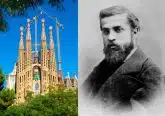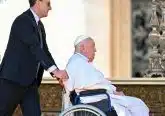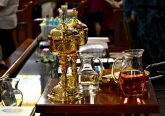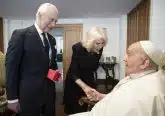Pope Francis: The Eucharist gives us Christ’s healing love
by Courtney Mares
Vatican City, Jun 14, 2020 / 04:00 am MT (CNA).- Christ’s presence in the Eucharist heals wounds and transforms bitter negativity into the joy of Lord, Pope Francis said in his homily for the Solemnity of Corpus Christi Sunday.
“The Eucharist brings us the Father’s faithful love, which heals our sense of being orphans. It gives us Jesus’ love, which transformed a tomb from an end to a beginning, and in the same way can transform our lives. It fills our hearts with the consoling love of the Holy Spirit, who never leaves us alone and always heals our wounds,” Pope Francis said June 14.
“Every time we receive him, he reminds us that we are precious, that we are guests he has invited to his banquet, friends with whom he wants to dine. And not only because he is generous, but because he is truly in love with us. He sees and loves the beauty and goodness that we are,” he said in St. Peter’s Basilica.
Pope Francis offered Mass for the Solemnity of Corpus Christi, a feast established in the 13th century following a Eucharistic miracle that led a host to bleed at the words of consecration.
“The Eucharist is not simply an act of remembrance; it is a fact: the Lord’s Passover is made present once again for us. In Mass the death and resurrection of Jesus are set before us,” Pope Francis said in his homily for the feast.
The Solemnity of Corpus Christi, meaning the “Body of Christ” in Latin, is traditionally celebrated on the Thursday following Trinity Sunday or, in some countries including the United States and Italy, on the Sunday following that feast.
The feast of the Most Holy Body and Blood of Christ provides an opportunity for the Church to focus on Christ’s real presence in the Eucharist, which Pope Francis said satisfies the deepest desires of our hearts.
“The Lord, offering himself to us in the simplicity of bread, also invites us not to waste our lives in chasing the myriad illusions that we think we cannot do without, yet that leave us empty within,” he said.
“The Eucharist satisfies our hunger for material things and kindles our desire to serve. It raises us from our comfortable and lazy lifestyle and reminds us that we are not only mouths to be fed, but also his hands, to be used to help feed others.”
Pope Francis said that Jesus approaches gently “in the disarming simplicity of the Host.”
“Only love can heal fear at its root and free us from the self-centeredness that imprisons us. And that is what Jesus does.”
“He comes as Bread broken in order to break open the shells of our selfishness. He gives of himself in order to teach us that only by opening our hearts can we be set free from our interior barriers, from the paralysis of the heart,” he said.
Many people have been hurt by lack of affection and “bitter disappointments caused by those who should have given them love and instead orphaned their hearts,” Francis said.
“We would like to go back and change the past, but we cannot,” he said. “God, however, can heal these wounds by placing within our memory a greater love: his own love.”
“The Lord knows that evil and sins do not define us; they are diseases, infections. And he comes to heal them with the Eucharist, which contains the antibodies to our negative memory. … We will always remember our failures, troubles, problems at home and at work, our unrealized dreams. But their weight will not crush us because Jesus is present even more deeply, encouraging us with his love,” he said.
God gave the world the gift of the Eucharist because he knows how easily people can forget him in their weakness, the pope said.
“God knows how difficult it is, he knows how weak our memory is … He did not just leave us words, for it is easy to forget what we hear. He did not just leave us the Scriptures, for it is easy to forget what we read. He did not just leave us signs, for we can forget even what we see. He gave us Food, for it is not easy to forget something we have actually tasted. He left us Bread in which he is truly present, alive and true, with all the flavour of his love.”
The pope said that the Mass is a “treasure” that should “take precedence both in the Church and in our lives.”
At the end of Mass, Pope Francis spent time in Eucharistic adoration, praying before the Blessed Sacrament in the basilica.
“Let us also rediscover Eucharistic adoration, which continues the work of the Mass within us,” he said. “This will do us much good, for it heals us within. Especially now, when our need is so great.”
He explained that Christ’s presence in the Eucharist is a font of charity, giving us strength to be his helping hands.
“It is especially urgent now to take care of those who hunger for food and for dignity, of those without work and those who struggle to carry on. And this we must do in a real way, as real as the Bread that Jesus gives us,” he said.
“This is the strength of the Eucharist, which transforms us into bringers of God, bringers of joy, not negativity,” Pope Francis said.
“In the Eucharist, Jesus draws close to us: let us not turn away from those around us.”













